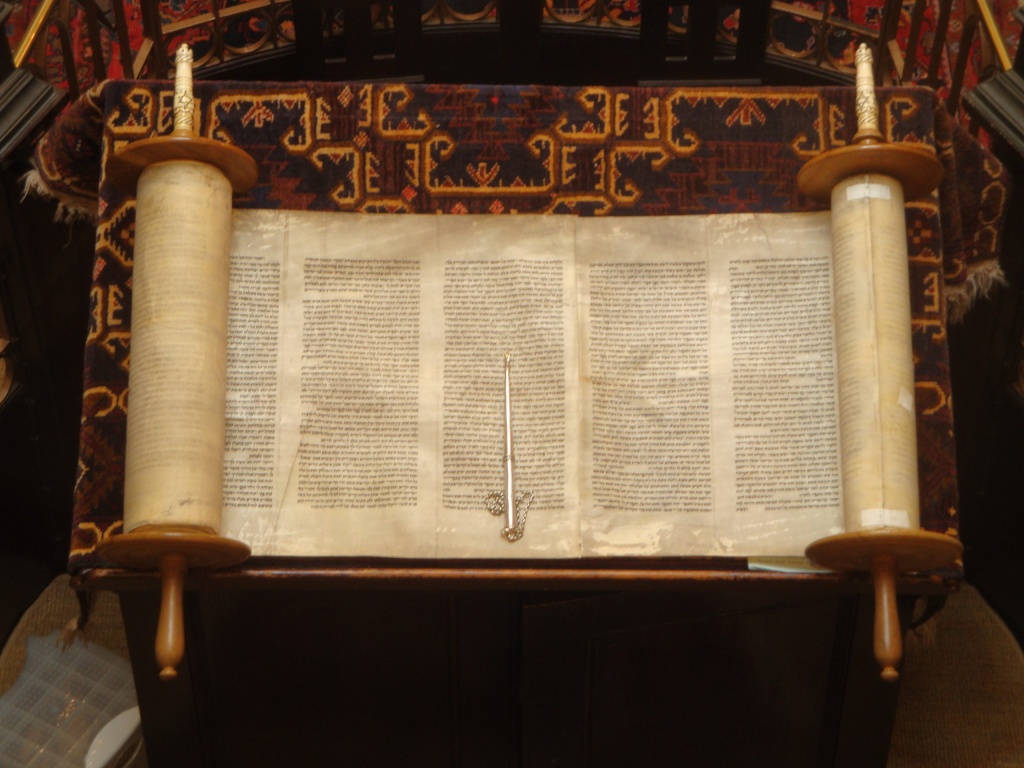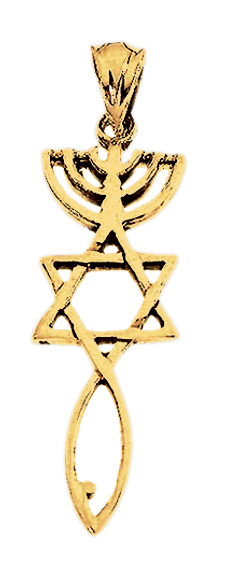Four Myths about the Law

By Sam Nadler
While studying Scripture, we can wrongly expect God’s word to conform to our own pre-conceived ideas, whether cultural or theological. However, it is essential to always look at the context and carefully discover the meaning the Holy Spirit intended, and then make application for our lives. During His earthly ministry Yeshua, the Living Word, continually gave teaching which challenged all of Israel especially the most religious of His day, to reexamine their lives, repent and trust in Him and not in their own works.
There is still much confusion and misunderstanding as to what Messiah was teaching concerning the Law (the Torah of Moses). It is vital for us to understand the meaning of His teaching from the Sermon on the Mount (Matt. 5:17-20) for our own lives since His word is our meat and drink. We will consider how Yeshua meant His teaching to be a challenge to all Israel by debunking four common myths about the Torah of Moses.
Myth 1: The Torah is Obliterated
“Do not think that I have come to abolish the Law or the Prophets; I have not come to abolish them but to fulfill them” (Matt. 5:17).
Yeshua says that He did not come to destroy Torah. Why would someone think he taught this? Well, imagine that you are trying to be good for goodness sake – and God lets some unspiritual person win the lottery! The good people can easily feel cheated. Yeshua had been healing people indiscriminately – regardless if they were religious or irreligious (Matt. 4:23-24). Naturally, as He was healing whoever came to Him, one might think that He lowered the standards of Torah. Since He is healing sinners or lawbreakers, is He not contrary to the Law and in fact setting the Law aside? (Those who may have thought that they were “righteous” merely justified themselves by their own values and not by the Torah at all.)
Some still think that Yeshua and the New Covenant are opposed to the Torah of Moses. They are not. The Torah of Moses was intended to show us God’s perfect holiness and since we all fall short, to show us our desperate need for God’s grace & mercy and lead us to Yeshua (Gal 3:23-24). Yeshua didn’t lower God’s standards but demonstrated God’s mercy and compassion on all people, for the healthy don’t need a doctor but the unhealthy (Matt. 9:12), and “causes the sun to rise on the evil and the good” (Matt. 5:45). If God was only to heal the perfectly righteous, no mere mortal would be healed. Rather than lower the standard of Torah, Yeshua revealed what a perfectly righteous person does – He heals others! Yeshua confirmed that God so loved the world.
Myth 2: The Torah is Obsolete
“For truly I say to you, until heaven and earth pass away, not an iota, not a dot will pass from the Law until all is accomplished” (Matt. 5:18).
Some people think that while not destroyed, the Law has actually passed away, or that it’s not for today – in other words, irrelevant. Yet, the idea of not one letter passing away, confirms the eternal standard of righteousness in Torah, for it reveals the holiness of God. As the smallest letter would stand forever, so the standard of righteousness that the letters represent would, as well.
Since heaven and earth are the witnesses to the charge of Torah obedience (Deut. 4:26; 30:19), creation, therefore, would have to pass away before the Law did! The Torah of Moses will remain until Olam HaBa, the world to come (Rev. 20:11; 21). “Until all is accomplished” means that all that the Law contains will take place and that is when heaven and earth pass away. So also, though marriage is only for this world and not for the next world (Matt. 22:30), we are to live out God’s eternal values in this earthly arrangement. Marriage has not passed away. Neither has the Torah. Why? The Law still reveals the sinfulness of humanity (Rom. 3:20, 7:7), and thereby our need for a Savior. Though we’re under the jurisdiction of the New Covenant, all the Scriptures always point to Yeshua (John 5:39). He is the divine redemptive program that the Feasts celebrate and that we observe. Thus, God’s redemptive program, from salvation at Passover through glorification at Booths, will be accomplished.
Myth 3: The Torah is Optional
“Therefore whoever annuls one of the least of these commandments and teaches others to do the same will be called least in the kingdom of heaven, but whoever does them and teaches them will be called great in the kingdom of heaven” (Matt. 5:19).
Many believers think of Torah as optional, that Messiah came and died so that we can disregard the small stuff or whatever’s inconvenient. However, our liberty does not make the Law optional. And all Scripture is not only inspired but profitable (2 Tim. 3:16). He who annuls the least is least. He who keeps the least is great. Both are in the kingdom, but some are rewarded more than others. It is often the disregard for the least that reveals the sinfulness of a person!
There are rewards for faithfulness to the Lord. Getting into Messiah’s kingdom is not based on faithfulness to the Law since even those who are inconsistent with respect to the Torah – and that is all of us – are said to be in the kingdom! Rather, “least” and “great” refer to the rewards of faithfulness. Be careful, just because we’re under the New Covenant’s jurisdiction doesn’t mean we can disregard any of God’s word.
What is meant by “least”? Later, Messiah speaks of the minimal importance of tithing “mint, dill, and cumin,” in comparison with the “weightier matters of the Torah,” justice and mercy and faithfulness (Matt. 23:23). A primary issue of loving your neighbor is not the same as a secondary issue like tithing, but both are Scriptural matters. My book Messianic Foundations gives more on how the New Covenant helps apply Torah.
Myth 4: The Torah is Orthodox Judaism
“For I tell you, unless your righteousness exceeds that of the scribes and Pharisees, you will never enter the kingdom of heaven” (Matt. 5:20).
The Pharisees have not entered. How this must have floored some Pharisees (others like Nicodemus and Joseph of Arimathea trusted in Yeshua)! These were the professionals; Biblical standards were what they were about. How could the religious be out and yet the law-breakers be in? The best and most religious are not our standard.
You must exceed them to enter. This would have stunned his disciples. The righteousness required by the Law to enter the presence of God was a quality only God has. Yeshua lived it out in the flesh and by faith in His death for your sins it is deposited to your account (2 Cor. 5:21). PTL! And it is to be lived out by dying daily to self (1 Cor. 15:31) as we daily trust in Him. The standard for the home, friendships and even our careers is Torah through God’s New Covenant application.
The Torah is Fulfilled
It is because of Yeshua that the Law required righteousness is fulfilled (Rom 10:4) and will therefore not pass away until all the Law and its prophecies are fulfilled and will therefore, not pass away until it is fully accomplished in Him. Thus, it is His fulfillment that is the standard through His Kingdom period and our lives now. His fulfillment is to be taught and lived out. Those who teach something other than a Yeshua-filled Torah are teaching false torah.
Some understand “fulfill” as to conclude, as in no longer applicable, but the passage means the exact opposite. Yeshua’s fulfillment of the Law is truly a profound matter, which cannot fully be addressed here or perhaps in this world. Here are some considerations for edification:
- He came to fulfill, as in living the Torah, and not annulling its guidance: He is a lamp unto our feet.
- He came to fulfill, as in completing the Torah, and not annulling its meaning: He is the true righteousness.
The word is used when days of pregnancy or a job is completed (Gen. 25:24; Gen 29:21; Luke 21:24).
It is a fulfillment of a promise (1 Kings 2:27) in that it demonstrates a faithfulness to a promise. He came to fulfill – that is, fulfill its requirements, promises and purpose, since He is the righteousness of that Torah – it is therefore inspired and profitable. Thus, the righteousness required is fulfilled and completed in Messiah.
3. He came to fulfill, as in fruit of the Torah, and not annulling its aim: a New Covenant.
To be fulfilled is to be satisfied (Psalm 81:10; Ecc. 1:8; 6:7) so, Yeshua fully satisfied the Torah demands and expectations. In some cases the meaning of prophecy is only fully known in its fulfillment (Matt. 2:15; Isaiah 7:14). Fulfilling all righteousness was not known to the prophet, but only to the Lord (Matt. 3:15). Torah is the root; Yeshua and the New Covenant are the fruit.
If you realize that you have failed to keep the Law and fall short of its standard, turn to Yeshua! He is the Word incarnate, even as Scripture is the Word inscribed. Because Yeshua is Torah, the Word of God, He is Torah’s only fulfillment. You cannot understand or follow Torah apart from Him, He is its meaning and its fulfillment. Apart from Yeshua, you can do nothing (John 15:5).
He does not give a deeper meaning to Torah – He gives its only true meaning, the real meaning to all of God’s will. Only His teaching is the true meaning of Torah. The New Covenant writings are His authorized meaning and application of Torah.




Add Comment